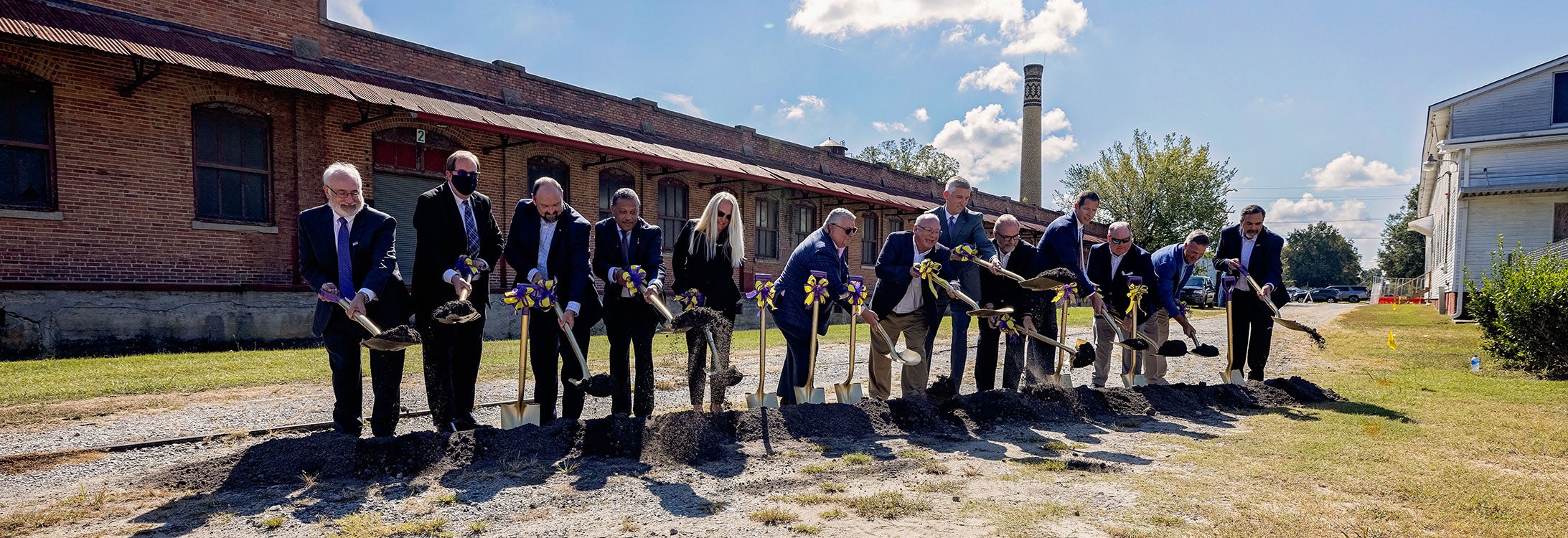Work begins on first phase of Intersect East
Developer Elliott Sidewalk Communities joined with university officials, Board of Trustees members, and local and state leaders in breaking ground on the $40 million project to renovate three buildings on the 19-acre tract off 10th Street and within sight of ECU’s new Life Sciences and Biotechnology Building.

Merrill
Flood, director of ECU’s Millennial
Campus planning and local
community affairs, speaks during
the groundbreaking ceremony.
The first three buildings to be renovated are called The Prizery (the former Export Leaf tobacco warehouse), The Stemmery (the former Pritchard- Hughes building) and The Hammock Factory (the former American Tobacco warehouse, which later housed Hatteras Hammocks). Tim Elliott, managing partner of Elliott Sidewalk Communities, devised the names from the work that used to take place in the buildings.
The first phase includes 10,000 square feet in The Prizery for the College of Engineering and Technology’s new digital transformation center that will cater to new and existing companies in digital transformation, product prototyping, discoveries and workforce development.
“Intersect East will be a vital connection between businesses, industries, communities and individuals that partner with East Carolina University, with faculty, staff and students finding solutions to tomorrow’s problems,” Merrill Flood, director of ECU’s Millennial Campus planning and local community affairs, said at the Oct. 5 groundbreaking.
Elliott anticipates completion of the first phase in December 2022. He said several companies, including one from Raleigh and another from Brazil, have shown interest in becoming tenants in the development. Potential tenants regularly tour the buildings, Flood added.
The UNC Board of Governors approved the lease agreement between ECU and Elliott Sidewalk Communities in 2020.
The project is an eight-year plan that includes a more than $150 million investment to renovate existing buildings, build new buildings and create green space, office space, dining and residential living. Along with that comes an estimated 1,500 jobs with a financial impact exceeding $141 million annually with $3 million in annual tax revenues, according to the developer.
“In order for ECU to thrive, we have to be a mission-aligned institution, we have to be a future-focused institution and an innovation-driven institution, and I really believe that this captures the essence, that this project captures the epitome of that work in action,” said Chancellor Philip Rogers.
